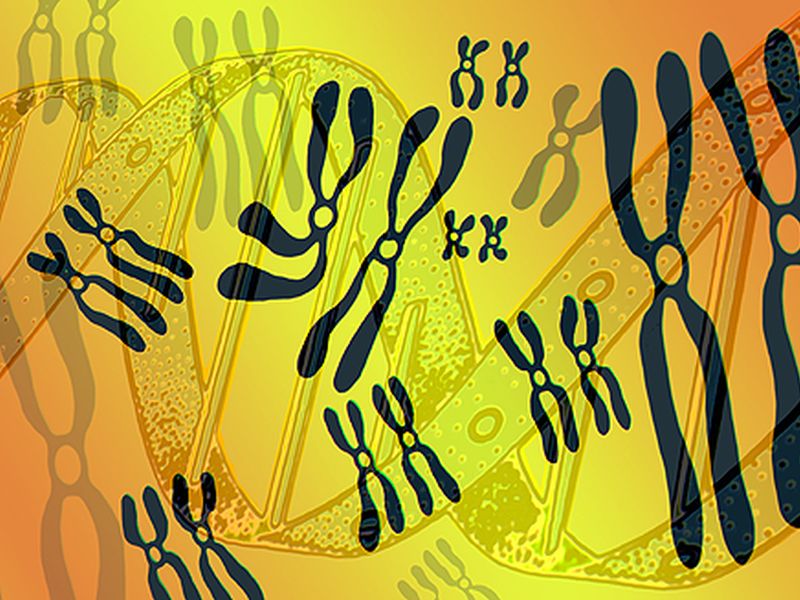Woman Feels No Pain, Thanks to Her Genes

THURSDAY, March 28, 2019 (HealthDay News) -- Jo Cameron, 71, has lived a life without pain.
The Scottish woman has experienced childbirth, broken limbs, cuts, burns and surgeries with little or no discomfort. She's leaned on her own hot stove and not realized there's a problem until she smelled something burning.
"I'm vegan, so the smell is pretty obvious," the former schoolteacher told The Guardian. "There's no other burning flesh going on in the house."
Now, researchers investigating her case report that she can credit her pain-free existence to two gene mutations.
And not only does her DNA allow Cameron to avoid physical pain, it also keeps her largely anxiety-free, too. As she told The Guardian, she was involved in a car accident two years ago where her car landed upside-down in a ditch. Cameron calmly crawled out to help another motorist. She's always happy and optimistic, and scores zero on stress and depression tests.
"I knew that I was happy-go-lucky, but it didn't dawn on me that I was different," she said. "I thought it was just me. I didn't know anything strange was going on until I was 65."
That's when doctors treating her for a hip replacement noticed that, on X-rays, the joint had grossly deteriorated -- even though Cameron said she felt no pain. Similarly, arthritis had seriously deformed her thumbs, but again Cameron said her hands felt fine.
Wounds also appear to heal more quickly for Cameron than other people, another characteristic potentially tied to her genetics.
Doctors have suggested that her case could provide clues to new ways of treating post-operative pain, or speeding wound healing.
Cameron "has a particular genotype that reduces activity of a gene already considered to be a possible target for pain and anxiety treatments," said study co-leader Dr. James Cox, from University College London Medicine, in England.
"Now that we are uncovering how this newly identified gene works, we hope to make further progress on new treatment targets," he added in a college news release.
Genetic tests revealed that Cameron has two notable gene mutations. One is in a gene the researchers named FAAH-OUT and the other was in a neighboring gene that controls the FAAH enzyme.
The FAAH-OUT gene was previously assumed to be a non-functioning "junk" gene. But now it is believed to affect expression of the FAAH gene, which is involved in signaling for pain sensation, mood and memory.
The findings were published March 27 in the British Journal of Anaesthesia.
Mice without the FAAH gene have reduced pain sensation, enhanced wound healing, and lower levels of anxiety and fear, the researchers noted.
And Cameron may not be alone. Since she was only identified in her 60s, it's possible that there are other people with the same gene mutation, the study authors said.
"People with rare insensitivity to pain can be valuable to medical research as we learn how their genetic mutations impact how they experience pain, so we would encourage anyone who does not experience pain to come forward," Cox said.
The researchers are continuing their work with Cameron. They discovered that her son is also somewhat desensitized to pain, suggesting that some of her genetics was passed on.
"We hope that with time, our findings might contribute to clinical research for post-operative pain and anxiety, and potentially chronic pain, PTSD [post-traumatic stress disorder] and wound healing, perhaps involving gene therapy techniques," Cox said.
For her part, Cameron hopes the research might lead to advances against pain.
"There may be more like me who are out there that haven't realized what is different about them," she told The Guardian. "If they go and help out with the experiments, it may do something to get people off man-made painkillers and on to more natural ways of relieving pain."
More information
The U.S. National Institute of Neurological Disorders and Stroke has more on pain.

The news stories provided in Health News and our Health-E News Newsletter are a service of the nationally syndicated HealthDay® news and information company. Stories refer to national trends and breaking health news, and are not necessarily indicative of or always supported by our facility and providers. This information is provided for informational and educational purposes only, and is not intended to be a substitute for medical advice, diagnosis, or treatment.

